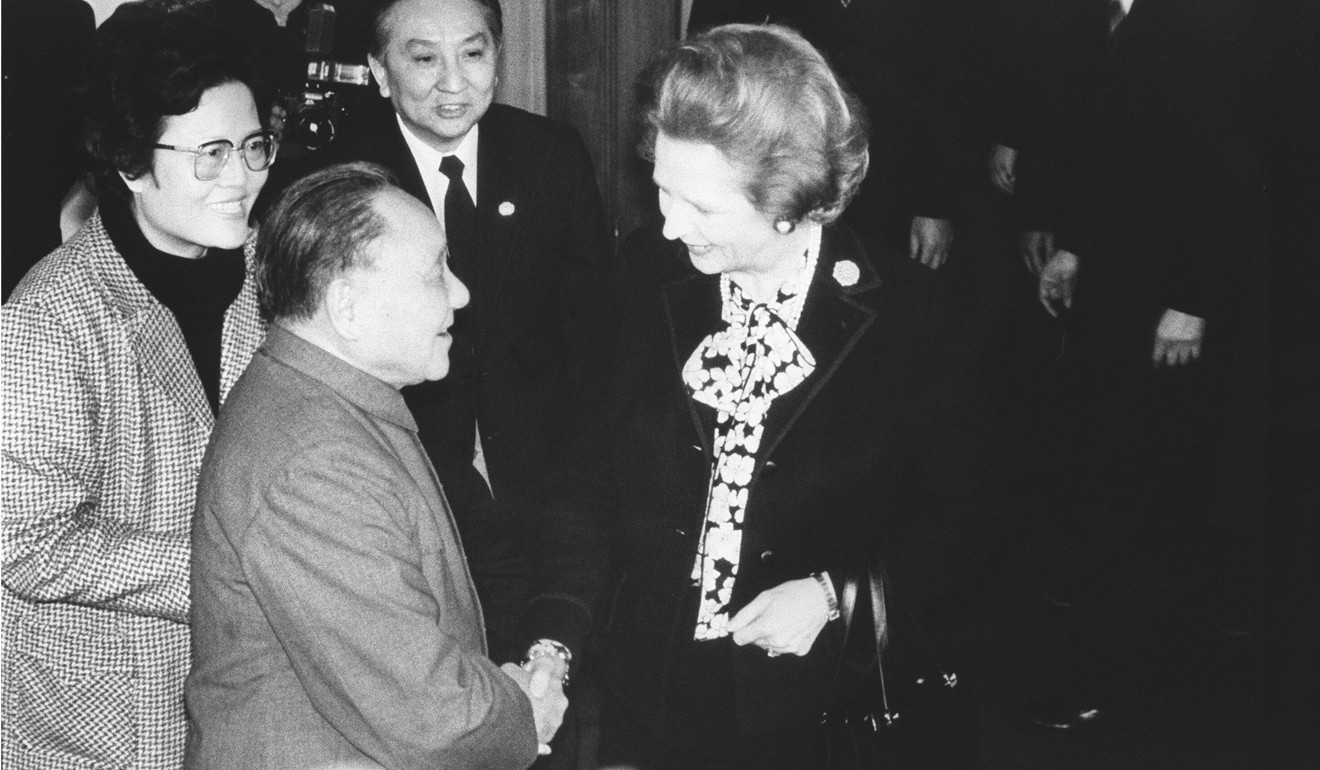
China’s hard line on Hong Kong only undermines confidence in the city. So why do it?
Michael C. Davis says the repeated dismissals of the relevance of the Sino-British Joint Declaration are unsettling, particularly as there is no question the document is a treaty under international law, and binding on its signatories
Is Hong Kong under the “one country, two systems” model a sand castle that can simply be washed away when China gets fed up with it?
While the answer may be “yes” as a matter of sheer power, it is clearly “no” both as a legal matter and as a common-sense political commitment.
There is no question, given Hong Kong’s location, that Beijing could pretty much do as it pleases in Hong Kong. One doubts anything more than diplomatic protests would stand in the way of a repressive Beijing move to seize absolute direct and unfettered control. Of course, the economic and political fallout of such a move is unfathomable.
The oft-repeated argument in favour of Beijing’s unconstrained authority is that those solemn treaty commitments are of no substance except as a British commitment to return Hong Kong to Chinese control and, in effect, a unilateral declaration of Chinese policies towards Hong Kong after Britain’s departure. This is presumably why, in this view, the term “declaration”, as opposed to treaty, is used.
In this account, the only added feature of the Joint Declaration was to set up a Joint Liaison Group to coordinate the handover with Britain.
Such a view ignores a number of legal requirements. First, it overlooks the fact that the Joint Declaration is unambiguously a binding treaty. It was properly registered with the United Nations as a treaty by both parties.
When the countries to an international agreement treat it as a treaty, nobody would sensibly argue that merely calling it a declaration would defeat that purpose. There is no question in international law that treaties come under a variety of names, including joint declarations.
Such arguments also ignore an important clause in the Joint Declaration itself that makes its treaty commitments explicit. Clause 7 expressly says that “The government of the United Kingdom and the government of the People's Republic of China agree to implement the preceding declarations and the annexes to this Joint Declaration.”
This clause, on its face, binds both parties to fully implement both the Joint Declaration and its annexes. Among such solemn legal commitments is a provision in Article 12 of the third clause in the Joint Declaration that requires the commitments made to be included in a Basic Law and “remain unchanged for 50 years”.
Accordingly, the Joint Declaration, including the Chinese declarations therein, remains as binding commitments not completely fulfilled until 2047.
Watch: What is the Basic Law of Hong Kong?
Bear in mind that the extensive commitments to human rights, the rule of law and democratic elections are all included in this third clause, where it is specified that all such commitments, including their extensive elaboration in Annex I, will be included in the Basic Law and remain binding for 50 years.
Beyond the obvious legal frailty of the argument for unfettered Beijing authority lurks a larger political question. Should any sensible government in Beijing embrace such a view? Unfortunately, the risk that Beijing will do so is high. The increasing interference by Beijing in Hong Kong seen over the past couple years is no doubt explained by the prevalence of such a view.
It was not always the case. Deng Xiaoping clearly understood the importance of China’s solemn commitments to Hong Kong when he asked Hong Kong investors to “put their hearts at ease”. This slogan laid the foundation for the Hong Kong handover when Chinese officials took the Joint Declaration to the capitals of the world.
The white paper goes so far as to date the 12 principles stated in those articles to early 1983, nearly two years before the treaty.
The sad reality is that when Beijing proclaimed its initial policies on Hong Kong in 1982, there was a near panic and many Hongkongers were preparing to emigrate. Things calmed down only as a revised version of those policies emerged in a solemn international treaty, the Sino-British Joint Declaration.

What could possibly be gained at present by Beijing overtly undermining confidence in Hong Kong by saying that the agreement is merely a historical document of no further importance?
While such an argument may hold some appeal to local pro-Beijing politicians and some mainland officials that might expect to benefit from increased Beijing control, it certainly offers no benefit to Hong Kong.
Such a dismissal of the Sino-British Joint Declaration would clearly violate Beijing’s solemn legal and political commitments and undermine local and international confidence in Hong Kong.
Professor Michael C. Davis, a former professor in the Faculty of Law at the University of Hong Kong, will be a visiting professor at the university during part of the coming autumn term

